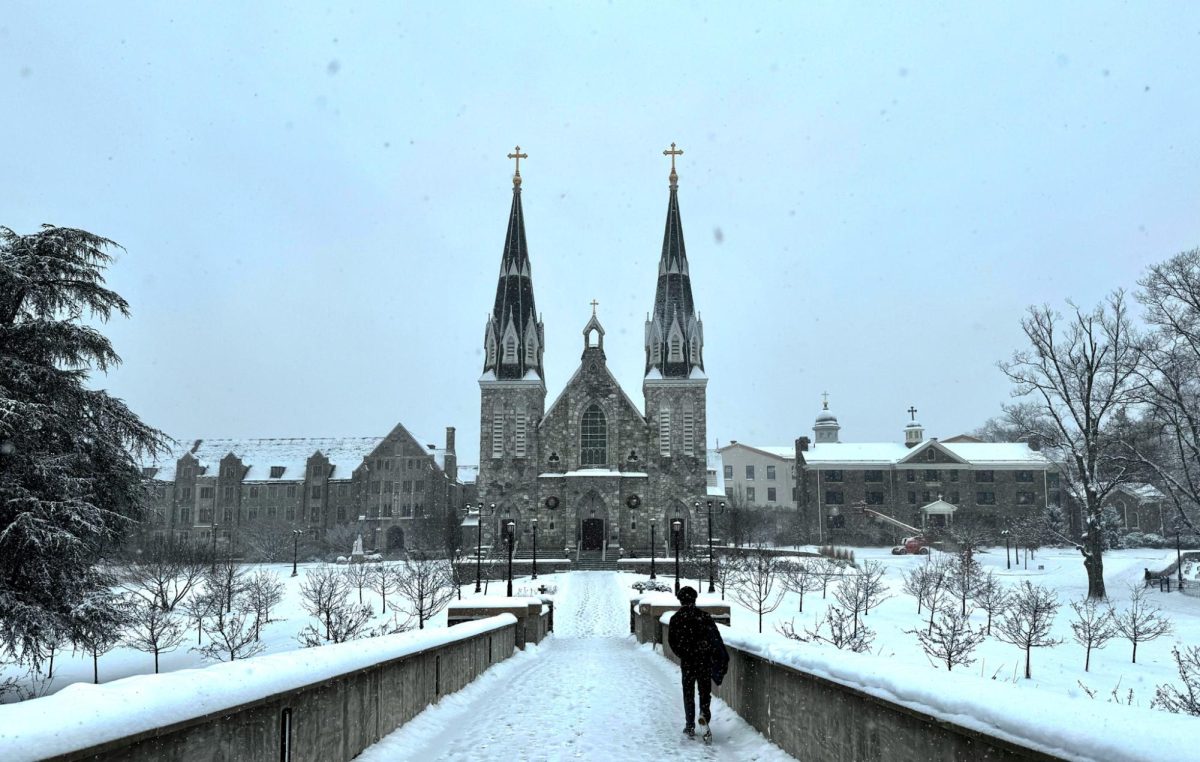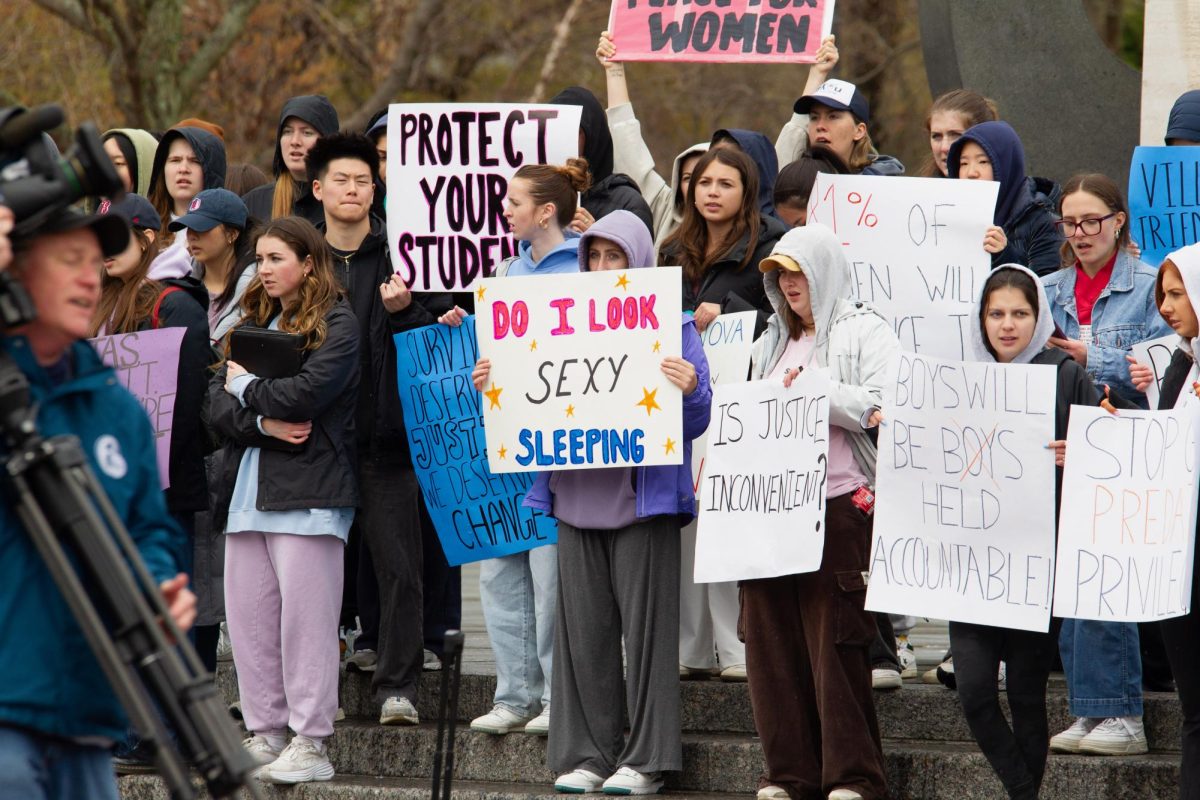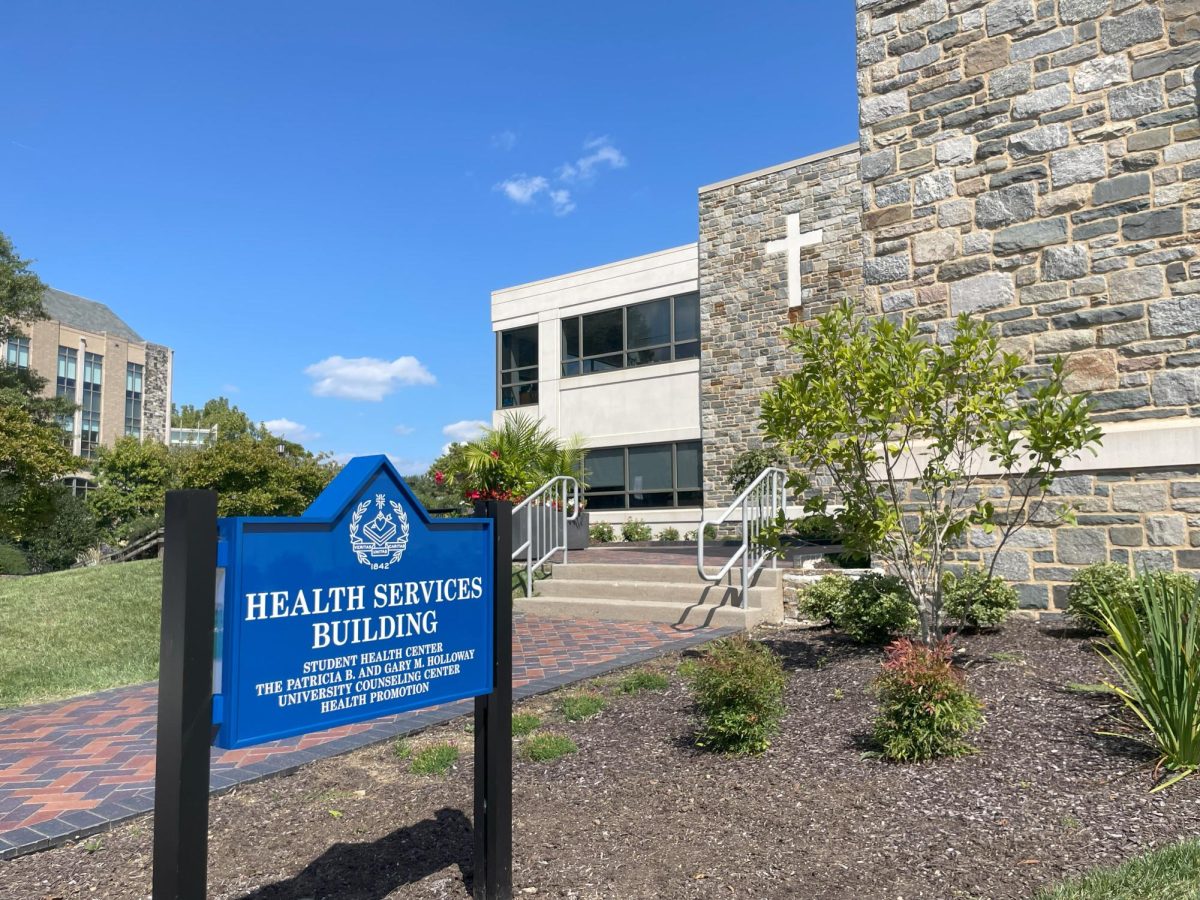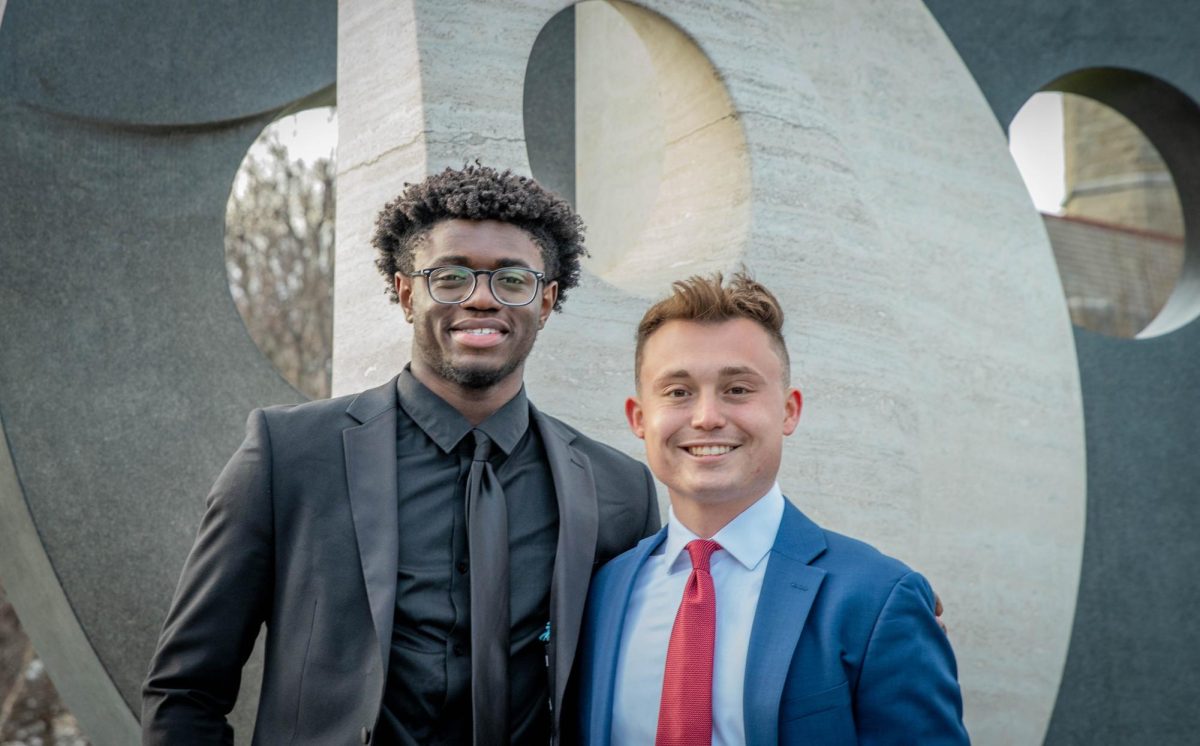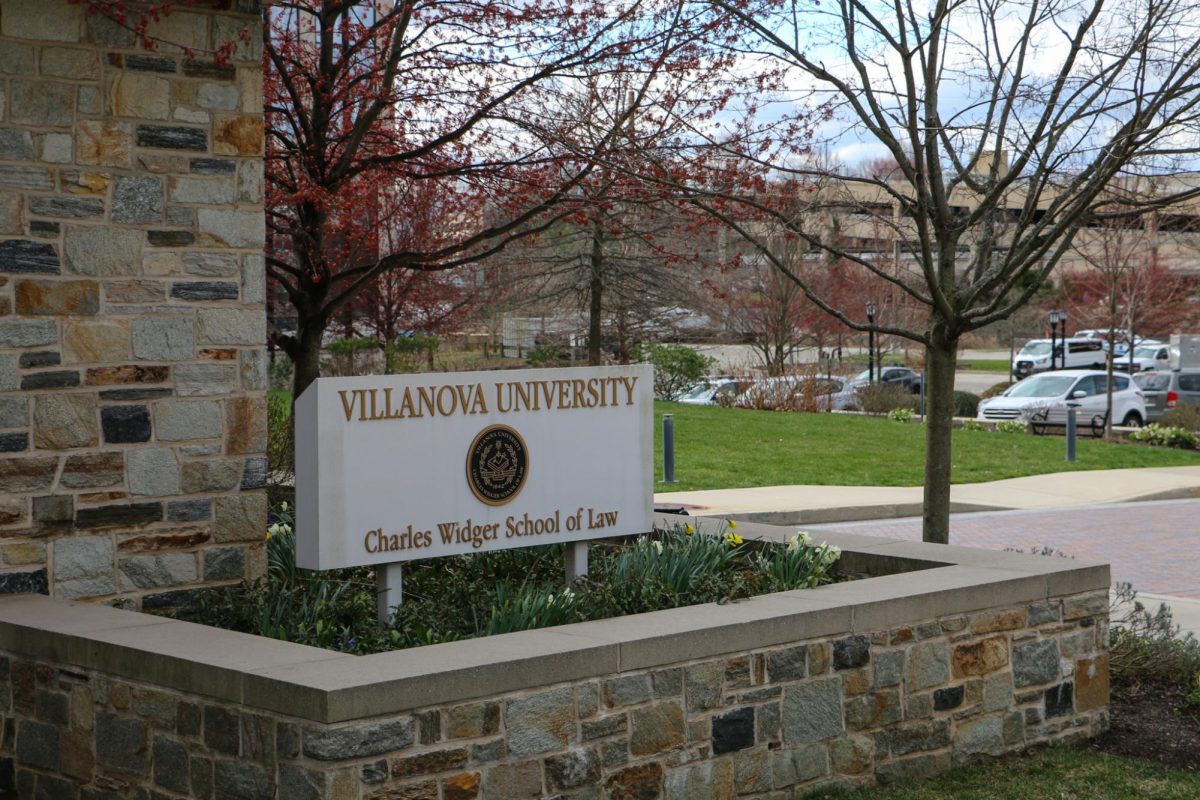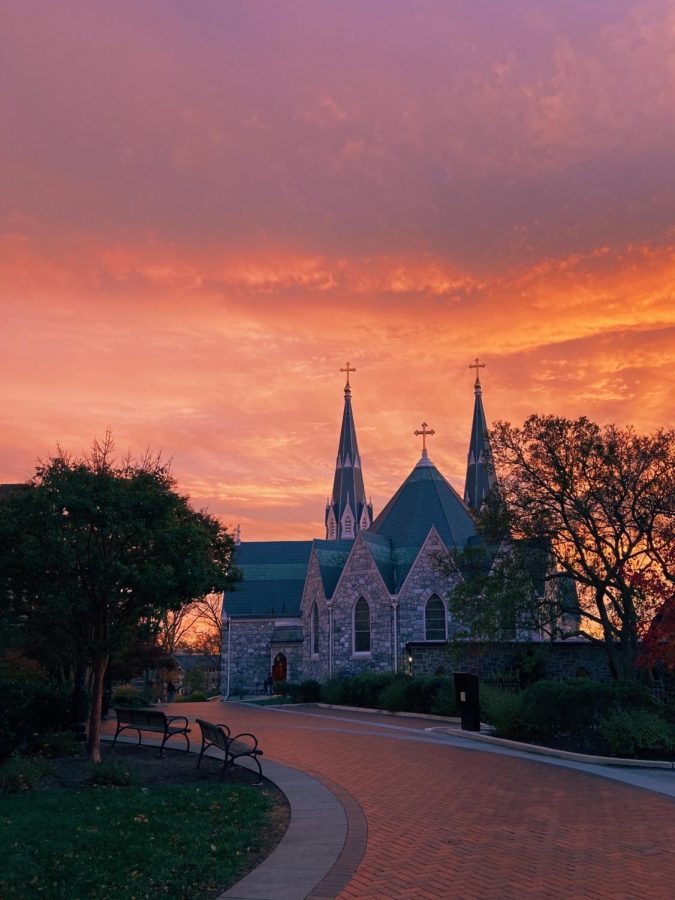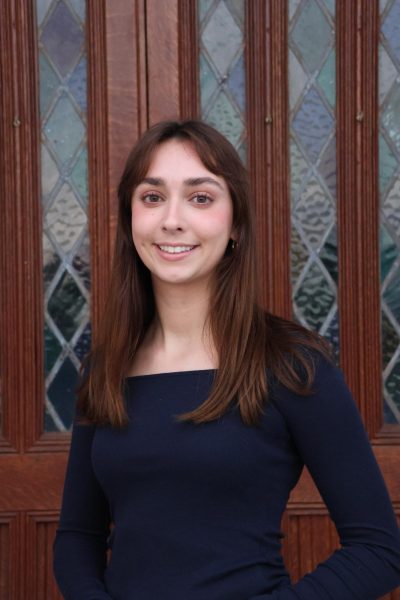Villanova University’s Office of Sustainability is hosting a two-part series on exploring climate anxiety through the lens of Pope Francis’ Laudate Diem. The first part of the series occurred on Wednesday, Jan. 31 and was held by a panel of Villanova students and faculty aiming to discuss the impact of the climate crisis through the Catholic lens.
The panel opened up with a quote from St. Augustine that read, “‘By your generous fire O God, our hearts are filled with fire.”
The theming of the series is in part based on that quote and the burning desire to do more for the planet in times of need. By encouraging discussion on the harsh impacts of climate change, the University hopes to “heat” the call of Pope Francis, embracing the critical need to converse about the issue.
Laudate Diem is a brief document written as a follow-up, or “scorecard,” on the Pope’s encyclical letter on working towards the common good, Laudato si. The document encapsulates environmental changes from 2015 to 2023 and the influence of Laudato si on Catholic perspectives regarding climate change. It emphasizes the need for action, particularly in translating divine messages into environmental stewardship for the benefit of society, considering perspectives from government, industry and individuals.
The first of the three main panelists to speak included Juliana Kwon, a senior student in VSB. Kwon brought in a fresh perspective of how the youth are organizing and rallying behind climate issues. She mentioned how general climate anxiety and the toll of responsibility seems daunting.
“We have landed ourselves in a position where we have taken advantage of our Earth,” Kwon said. “What do you do when the costs are too great and you can’t minimize them?”
In addition, she spoke on how society must rethink their use of power, that we have the resources and capabilities at our disposal.
The following panelist was Dr. Bridget Wadzuk, Director of Sustainable Engineering and Chair of Civil Engineering in Villanova University’s College of Engineering. She discussed the influence of climate anxiety on motivating action.
“Anxiety comes from uncertainty, when everything is always unprecedented, we do not know what comes next,” Wadzuk said. “When there is uncertainty or anxiety, it triggers fight or flight. Some are going to fight through it, others are going to see it and ignore it.”
Given that 2023 has been identified as the warmest year on record and sea levels are at an all time high, it is understandable to feel hesitant about taking action when the issue appears so daunting. And with a rise in content comes a rise in skepticism, making it increasingly difficult to discern the importance of context within the climate sphere.
This hesitancy to act has been felt by the final panelist, Father John J. Lydon, from Villanova’s Center for Faith and Learning, who related this issue in a way students would understand.
“If [mitigating climate change] was due on the 30th, would we do it on the 29th?” Father John said.
Moreover, there appears to be a fundamental problem with humanity’s tendency to project a hierarchical relationship onto the Earth. The problem lies within the tendency to make ourselves gods.
“In our relationship with Earth, we cannot be abusive,” Father John said. “Individuals have to start doing something, and our doing something starts to change our own mindsets, and our mindsets change the culture around us.”
Concluding the panel was a message from University President Rev. Peter M. Donohue, O.S.A., Ph.D. on the importance of recognizing sustainable initiatives on campus and the moral imperative to take a stand, guided by the principles set forth by the Catholic Church.
“Here at Villanova, it’s an us problem,” Father Peter said. “As an institution of higher education, I believe that it is incumbent on Villanova to take measurable actions and under the guidance of Laudato si [and Laudate Diem] to achieve an ethos of sustainable living in every aspect of our campus life.”
Keep an eye out for more information pertaining to the final installment of the fireside conversation series, “Exploring Climate Anxiety through the Lens of Laudate Diem.”

